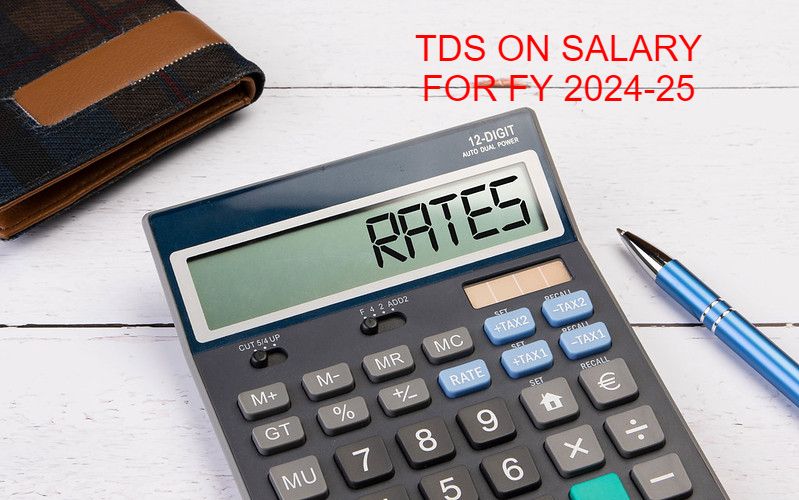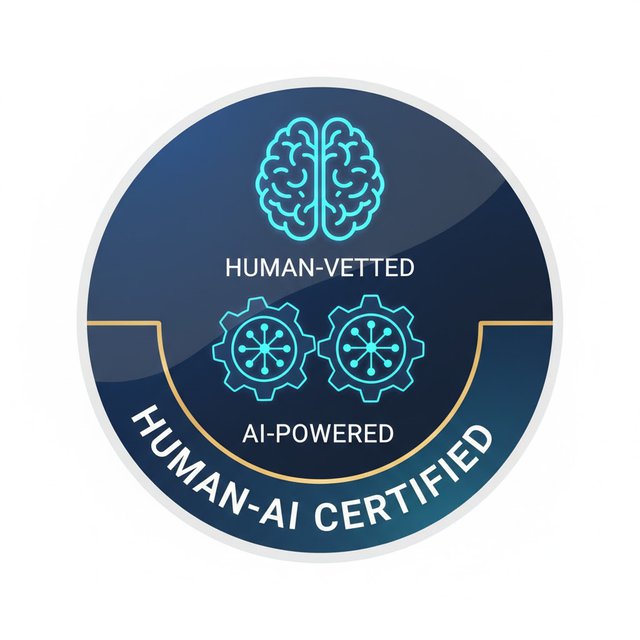TDS ON SALARY AND PENSION FOR FY 2024-25

EMPLOYEES CAN INTIMATE THEIR PREFERENCE OF REGIME :
Dated 23.04.2024 : Income Tax Department had directed the employers to seek options with regard to tax regime an employee wants to choose and each such employee shall intimate the same to his / her employer, regarding his intended tax regime for each year and upon intimation, the employer would compute the total income of the employee , and deduct tax at source ( TDS ) thereon according to the option exercised .
Accordingly , employers will ask the employees to intimate the choice of the regime for this Financial year 2024-25 also . If intimation is not made by the employee, it shall be presumed that the employee continues to be in the default tax regime and has not exercised the option to opt out of the new tax regime. Accordingly, in such a case, the employer shall deduct tax at source, on income under section 192 of the Act, in accordance with the rates provided under the new tax regime ( sub-section (lA) of section 115BAC of the Act.)
Before selecting the regime , one may check which regime may be suitable for him / her with the anticipated earnings in the year .
How to select old / new tax regimes ?
Income tax department has developed a calculator to help the tax payers which is available in e-filing portal.
1. Go to e-filing website and login
2. Enter your PAN Number and password , OTP and log-in
3. Go to ” Income & Tax estimator ” and click
4. Fill the basic information , income details and deductions eligible
5. Click on ” Estimate Tax ”
7. The system will give the tax payable by you in both old and new regimes simultaneously with detailed analysiYou may fill the basic details like Residential status , senior citizen status etc , your expected income for the year and the total exemptions you are eligible to get probable tax payable in both the regimes . Based on the information , you may opt for the tax regime .
To read the income tax department’s circular , CLICK HERE
TDS ON SALARY AND PENSION
As per section 192 (I ) of the Income Tax Act, any person responsible for paying any income chargeable under the head “Salaries” shall, at the time of payment, deduct income-tax on the amount payable at the average rate of income-tax computed on the basis of the rates in force for the financial year in which the payment is made, on the estimated income of the employee under the head of Salary income for that financial year
WHAT IS SALARY AS PER INCOME TAX ACT ?
As per section 15 of the Income Tax Act, the following incomes are chargeable to income-tax under the head “Salaries”-(a) any salary’ due from an employer or a former employer in the previous year, whether paid or not;
(b) any salary paid or allowed to him in the previous year by or on behalf of an employer or a former employer though not due or before it became due to him;(c) any arrears of salary paid or allowed to him in the previous year by or on behalf of an employer or a former employer, if not charged to income-tax for any earlier previous year.
As per section 17 of the Income Tax Act. Salary includes the following:i) wages;
ii) any annuity or pension;iii) any gratuity;
iv) any fees, commissions. perquisites or profits in lieu of or in addition to any salary or wages;v) any advance of salary;
VI) any payment received by an employee in respect of any period of leave not availed of by him;vii) the portion of the annual accretion to the balance at the credit of an employee participating in a recognised provident fund. to the extent to which it is chargeable to tax under rule 6 of Part A of the Fourth Schedule;
a) contributions made by the employer to the account of the employee in a recognized provident fund in excess of 12% of the salary of the employee, andb) interest credited on the balance to the credit of the employee in so far as it is allowed at a rate exceeding such rate as may be fixed by Central Government by notification in the Official Gazette;
viii)the contribution made by the Central Government or any other employer to the account of the employee under the New Pension Scheme ix) the aggregate of all sums that are comprised in the transferred balance of the employee participating in a recognized provident fund, to the extent to which it is chargeable to tax .
TDS ON PENSION
It may be noted that. since salary includes pension, tax at source TDS would have to be deducted from pension also, unless otherwise so required. However, no tax is required to be deducted from the commuted portion of pension to the extent exempt under section 10 (IGA).Family Pension is chargeable to tax under the head “Income from other sources” and not under the head “Salaries”. Therefore. provisions of section 192 of the Act are not applicable. Hence, DOOs are not required to deduct TDS on family pension paid to person.
TDS ON FAMILY PENSION
Family Pension is chargeable to tax under the head “Income from other sources” and not under the head “Salaries”. Therefore. provisions of section 192 of the Act are not applicable. Hence, employers are not required to deduct TDS on family pension paid to a person.
TDS ON PERQUISITES
MINIMUM PERQUISITE VALUE FOR TDS : RS 20,000 per FY
Dated 14.09.2022 : Income Tax Department has issued the following Additional Guidelines for removal of difficulties under sub-section (2) of section 194R of the Income-tax Act, 1961 with regard to TDS on perquisites which is effective from 01.07.022 :
1. The new section mandates a person, who is responsible for providing any benefit or perquisite to a resident, to deduct tax at source @ 10% of the value or aggregate of value of such benefit or perquisite, before providing such benefit or perquisite. The benefit or perquisite mayor may not be convertible into money but should arise either from carrying out of business, or from exercising a profession, by such resident.
2. This deduction is not required to be made, if the value or aggregate of value of the benefit or perquisite provided or likely to be provided to the resident during the financial year does not exceed Rs 20,000
3. The responsibility of tax deduction also does not apply to a person, being an Individual/Hindu Undivided Family (HUF) deductor, whose total sales / gross receipts / gross turnover from business does not exceed Rupees one crore , or from profession does not exceed Rupees 50 lakhs , during the financial year immediately preceding the financial year In which such benefit or perquisite is provided by him.
To read the relevant notification of CBDT , CLICK HERE
What is a Perquisite?
As per Section 17(2) of the Act, perquisites include:
i) The value of rent-free accommodation provided to the employee by his employer;ii) The value of any concession in the matter of rent in respect of any accommodation provided to the employee by his employer;
iii) The value of any benefit or amenity granted or provided free of cost or at concessional rate in any of the following cases:a) By a company to an employee who is a director of such company;
b) By a company to an employee who has a substantial interest in the company;c) By an employer (including a company) to an employee, who is not covered by (a) or (b) above and whose income under the head “Salaries” , exclusive of the value of all benefits or amenities not provided for by way of monetary payment, exceeds Rs.50,OOOI-.
iv) Any sum paid by the employer in respect of any obligation which would otherwise have been payable by the employee.v) Any slim payable by the employer. whether directly or through a fund. other than a recognized provident fund or an approved superannuation fund or other specified funds to effect an assurance on the life of an assessee or to effect a contract 3 for an annuity.
vi) The value of any specified security or sweat equity shares allotted or transferred, directly or indirectly, by the employer, or former employer, free of cost or at concessional rate to the employee. ;(vii) the amount or the aggregate of amounts of any contribution made to the account of the employee by the employer-
(a) in a recognised provident fund;(b) in the scheme referred to in sub-section (1) ofsection 8QCCD; and
(c) in an approved superannuation fund,to the extent it exceeds seven lakh and fifty thousand rupees in a previous year;(viia) the annual accretion by way of interest, dividend or any other amount of similar nature during the previous year to the balance at the credit of the fund or scheme referred to in clause (vii) above to the extent it relates to the contribution referred to in the said clause which is included in total income; and
(viii) the value of any other fringe benefit or amenity like a. Motor car provided by the employer
b. Personal attendants etc . c. Gas, electricity & water for household consumption .
d. Free or concessional Education e. Interest free or concessional loans.
f. Travelling, touring, accommodation and any other expenses paid for or reimbursed by the employer for any holiday availed . g. Value of Subsidized or Free food / non-alcoholic beverages provided by the employer to an employee
h. Giftsi. Membership Fees and Annual Subscription , club expenditure
j. Medical Reimbursement by the employer .
TDS ON SALARY – CALCULATION
1. Employers paying salary , pension and other perquisites have to deduct TDS on the estimated income of the Employee / pensioners” for the financial year 2024-25. The income-tax is required to be calculated on the basis of the tax slabs and to be be deducted at the time of each salary payment at the average rate . The tax deduction shall be made at the average rate of income tax on the amount payable, computed on the basis of the rates in force for the financial year in which the payment is made, on the estimated income under the head of Salary for that financial year.
2. Any employee intending to opt for the concessional rates of tax under section 115B AC of the Act may intimate the employer . If such intimation is not made by the employee. the employer shall make TDS without considering the provision of section 115B AC of the Act. The intimation so made to the employer shall be only for the purpose of TDS during the previous year and can not be modified during that year.
3. Tax rebates eligible have to be taken in to account , while estimating the salary income . Employee has to provide a declaration along with proof of payment of eligible rebates to the employer . For the purpose of estimating income of the employee for computing tax deductions, section 192(2D) provides that employers have to obtain from the employees evidence or proof or particular of claims of rebates . ( You may read our article on TAX REBATES to know various tax rebates you may be eligible )
For various tax slabs under new tax regime and old tax regime . go to the article TAX RATES FOR FY 2023-24
PROOF TO BE SUBMITTED FOR AVOIDING TDS ON SALARY / PENSION
14.01.2019 : On Jan1, 2019 , Central Board of direct Taxes ( CBDT ) has issued an exhaustive circular regarding Tax Deducted at source ( TDS ) on salaries explaining various aspects and nitty-gritties of TDS with example cases . The circular also asks pension paying offices / banks to treat Pension paid by them as equivalent to salaries and deduct TDS for the financial year 2018-19 as being deducted for the salaries .
The salaried persons / pensioners who have utilized any rebates available to them under various sections like 80C , 80D etc under the old tax regime have to submit a form 12 BB to their employers / ex-employers to enable them take note of the rebates availed by them while calculating TDS and remitting to the government . The employers / pension payers are expected to collect proof of evidence while allowing the rebates ,
In view of the above circular , many employers / bankers are allowing their employees / pensioners to upload the tax rebate claim details on-line also . However in such cases also , proof of evidence for claiming rebate is to be given by the employees / pensioners .
Each of the person claiming rebate has to produce concerned receipt / statement . Some of such proofs normally required for claiming under 80C / 80D etc are as follows :
1. Life Insurance Premium receipt 2. Health insurance premium receipt ( In case of group insurance , show the relevant debit in your account )
3. PPF Passbook entries / receipt 4. Interest paid certificate on Housing loans
5. Interest paid certificate on education loan taken 6. Tuition fee receipts from schools / colleges
7. National Savings Certificates Purchased during the current year 8. Housing loan statement .
9 . Investment Statement in eligible Mutual funds 10. Sukanya Samruddhi yojana Receipt / statement
Please verify each of the claim you make is eligible for rebate and enter in the appropriate column showing section under which it is eligible .You may fill form 12BB and submit to the relevant authority along with copies of proof so that they will recognise the rebates you have availed . Obtain an acknowledgement from them on submission of 12BB
To read the CBDT CIRCULAR , click on the link below :
Circular No 01/2019 dated 01.01.2019 .
ACKNOWLEDGEMENT : The above article is based on income tax department’s circular 04-2002 dated 15.03.2022 and is an attempt to present the information contained therein in an abridged and simplified manner .
THIS ARTICLES ON TAX MATTERS IN THIS WEBSITE CARRY INFORMATION ON VARIOUS TAX PROVISIONS WHICH ARE GENERALLY USEFUL .YET THEY DO NOT NOT CARRY ALL THE PROVISIONS AND HENCE YOU ARE ADVISED TO GO THROUGH INCOME TAX DEPARTMENT WEBSITES FOR AUTHENTIC COMPLETE INFORMATION ,ESPECIALLY FOR THOSE WHO HAVE GOT MULTIPLE STREAMS OF INCOME OR COMPLEX INVESTMENTS .YOU MAY ALSO CONSULT A QUALIFIED TAX CONSULTANT / CHARTERED ACCOUNTANT FOR ANY CLARIFICATION. READERS ARE ALSO WELCOME TO SEND FEEDBACK , FORM AVAILABLE BELOW. WE ARE OPEN FOR CORRECTION IF NEEDED

DISCLAIMER
Use of the information at this site www.plannprogress.com is at one’s own risk. We do not offer to sell or solicit to buy any financial instruments including Deposits , Loans whether short term or otherwise , Mortgages , Stocks , Insurance or Mutual Funds .This site does not offer to sell or solicitation to buy any securities and we will not be liable for any losses incurred or investment(s) made or decisions taken/or not taken based on the information provided herein. Information contained herein are purely for educational purposes and does not constitute a personal recommendation or take into account the particular investment objectives, financial situations, or needs of individual investors. Before acting on any recommendation, investors should consider whether it is suitable for their particular circumstances and, if necessary, seek an independent professional advice.
Entry to this site is free of charge and we do not charge any fees what so ever . No need for registration for viewing the site . All content and information is provided on an ‘As Is’ basis by us. Information herein is believed to be reliable, but does not warrant its completeness or accuracy and expressly disclaims all warranties and conditions of any kind, whether express or implied. As a condition to accessing http://www.plannprogress.com content and website, you agree to our Terms and Conditions of Use, Privacy policy & Disclaimer available on the links . The performance data quoted represents past performance and does not guarantee future results.
Articles/ Pages in this site contain advertisements and links to various third party sites / blogs as we have found articles therein interesting and useful and we believe reliable . Those links sites and advertisements may contain offer of sales or services of various kinds including financial services . We accept no responsibility for the accuracy , correctness and/or completeness of any information contained therein as we have not independently verified. The links and third party advertisements are governed by the privacy policy of those third party sites / blogs. We do not warrant or guarantee for any services or sales utilized therein . This site expressly disclaims all warranties and conditions of any kind, whether express or implied. However readers are advised to exercise their discretion in utilising / following any advice contained therein or utilizing any services or accepting their sales or any other offers and we do not take any responsibility what so ever.
The site is governed by Indian Laws and comes within the jurisdiction of courts in Mysuru , Karnataka , India
Contact Information : The site www.plannprogress.com is owned and operated by Mr . Manjunathan B.N. , No 37, 5thBlock , Madhuvana Layout , Sriramapura 2nd stage , Mysuru 570023 , Karnataka , India and can be contacted at email : info@plannprogress.com
Copyright © PlannProgress – All Rights are Reserved | Powered by PixelFlare
This website uses cookies to provide necessary site functionality and to improve your experience. By using this website, you agree to our use of cookies.




